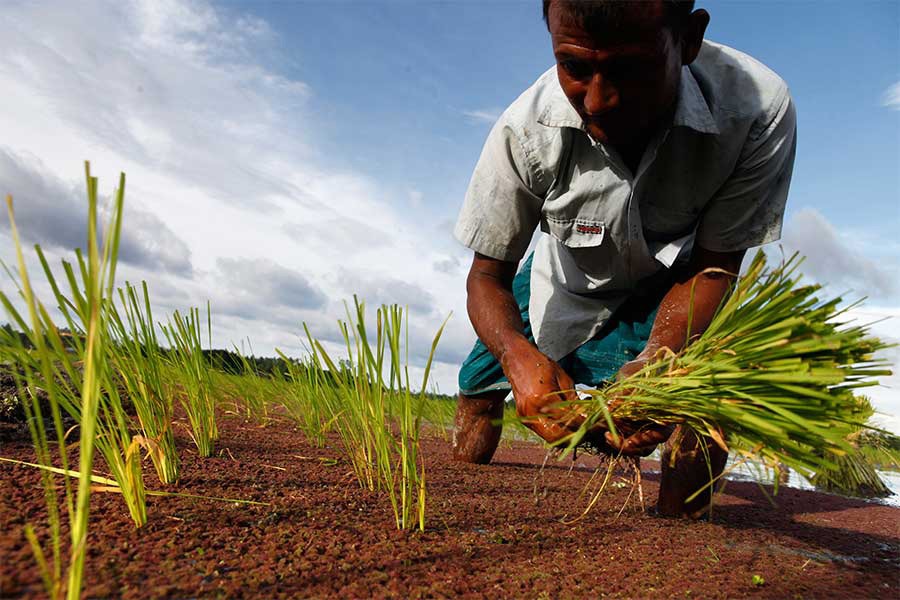Ensuring food and nutrition security of the country's large population will be challenging in near future as the average farm holding and labour forces are declining, an agricultural expert said.
The average farm holding per person is now 0.10 hectare against 1.7 hectare in the 1960s. Even in 1990s, it was nearly 0.70 hectare per person.
In the meantime, he said the population will reach 178 million by 2025 and 215 million by 2050.
Dr Md Shajahan Kabir, director general at the Bangladesh Rice Research Institute, painted the gloomy outlook while making a presentation at the Economic Relations Division recently.
The ERD organised the programme to explore how to raise crop production in view of the growth pattern of the population.
The BRRI head said there is also a significant shift in labour from agriculture to the non-agricultural sector in recent decades, which hit production.
The agricultural labour decreased to 23 per cent in 2016 from 43 per cent in 2000. In 1988, the share of farm labour was 58 per cent.
He said increasing cropping intensity at a higher rate tends to exert pressure on soil fertility.
Cropping intensity, which refers to the raise in the number of crops from the same field during one agriculture year, is now 194 per cent. It is expected to rise 221 per cent by 2050.
He said multiple uses of land in a year damage the soil fertility, which is a threat to the sustainable crop production in the country.
Dr Kabir, in his paper, noted there is a fast depletion of groundwater aquifer, especially in the northern belt of Bangladesh.
"The decline in groundwater is very alarming in northern and industrial part of the country due to the uneven rainfall and use of more underground water for crops and industrial production," the paper reads.
When contacted, the BRRI chief told the FE Bangladesh now needs to conduct an agricultural reform meant for expanding the mechanised farming.
He said: "The labour force participation is declining fast in the agriculture sector so there is a need for the introduction of mechnised farming." "We need research to invent new varieties, which require less amount of water during the plant's life."
Dr Kabir said price volatility also discourages the farmers from producing the cereals in the country.
"Inconsistent and unstructured marketing channels, lower stock capacity by the government makes the rice market more volatile."
However, participants, who joined the programme, told the FE that Bangladesh's positive side is that the eating habit is changing as the wheat consumption is expanding.
An official at the ERD contradicted the present cropping intensity, arguing that this should rise further.
"Actually, I don't see the present cropping intensity is a major problem," he said.
He said financial support from the development partners is needed to conduct research on meeting the future challenges pertaining to food production.


